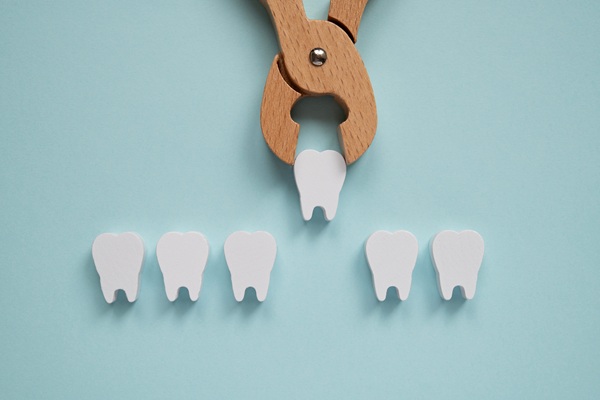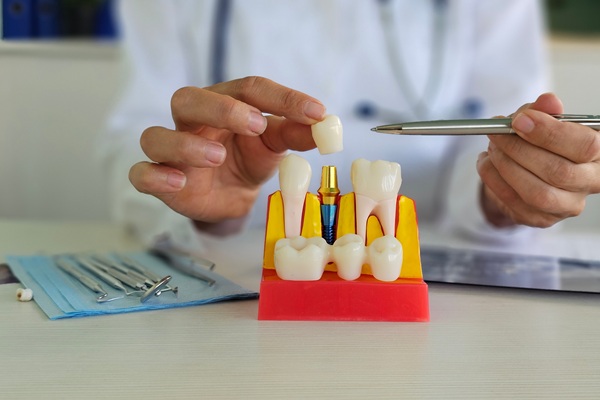The Impact of a Missing Tooth: Why Replacement Is Important for Your Oral Health

A missing tooth can be more than an aesthetic concern; it can significantly affect overall oral health. Beyond the visible gap, a missing tooth can cause a variety of dental issues that, if left untreated, can impact jawbone health and smile alignment. Addressing a missing tooth by consulting a general dentist helps restore appearance, function, and oral health.
How a missing tooth affects oral health
Having a missing tooth replaced can help patients avoid various oral health problems. Below, explore the most common problems that can come from the gap left by a missing tooth:
Jawbone health
One of the primary consequences of a missing tooth is its effect on the jawbone. The roots of natural teeth stimulate the jawbone, helping to maintain its density and strength. When a tooth is lost, the lack of stimulation causes the bone in that area to diminish gradually over time. The jawbone becomes weaker as a result. This can also change the face and create a sunken or prematurely aged look.
Replacing a missing tooth, particularly with options such as dental implants, prevents this bone loss. Implants serve as new tooth roots and stimulate the jawbone, which, in turn, strengthens and maintains its structure.
Bite and alignment issues
A missing tooth disrupts the natural alignment of surrounding teeth. Adjacent teeth may begin to shift into the empty space, altering the smile. These shifts can eventually lead to bite problems, including increased wear on certain teeth, jaw pain, and chewing difficulties. Additionally, a misaligned bite may contribute to issues like temporomandibular joint (TMJ) disorders, which can be uncomfortable and interfere with daily activities. Replacing a missing tooth, even with a removable partial denture, can help maintain proper spacing and alignment, preventing surrounding teeth from shifting out of position.
Gum disease and tooth decay
Finally, there is a higher risk of gum disease and tooth decay with a missing tooth. Gaps in the smile serve as the perfect place for food and plaque to build up. This buildup can easily harden into tartar and cause gum inflammation. If left untreated, this can then lead to the development of periodontal (gum) disease. As a result, the surrounding teeth may start to decay and loosen.
Replacing a missing tooth helps to close the gap and shrink the areas where bacteria can accumulate. This is particularly true for options like dental implants and bridges, which fit snugly into the space and create a continuous surface that is easier to keep clean.
Visiting a general dentist about a missing tooth
It is a general rule to consult a dental provider about oral health problems immediately. Thus, patients who have lost a tooth should consult a general dentist as soon as possible. During an initial consultation, the dentist will perform a comprehensive evaluation of the mouth, including an assessment of jawbone health, alignment, and the condition of surrounding teeth. Dental X-rays and other imaging techniques may be used to help determine the most suitable replacement solution.
Tooth replacements to restore oral health
There are several effective tooth replacements, each of which can be tailored to meet patient needs and preferences. A dental implant is widely regarded as one of the most effective options; it is a titanium post surgically placed into the jawbone to act as a replacement tooth root. Once the implant integrates with the bone, a dental crown is typically added to replicate the appearance and function of a natural tooth. This approach not only supports chewing and speech but also prevents bone loss by providing necessary jawbone stimulation.
Another common option is the dental bridge, which replaces missing teeth by anchoring one or more artificial teeth to crowns on adjacent natural teeth. Bridges restore bite function and appearance by filling the gap left by the missing tooth. They are also a good option for replacing multiple teeth in a row.
Similarly, removable partial dentures (or flipper teeth) can replace one to several teeth with a single device. This option may appeal to patients seeking a non-invasive tooth replacement.
Consult a general dentist today
Replacing a missing tooth is an important step in maintaining overall oral health. It helps to preserve smile function and appearance, as well as prevent long-term oral health effects. With tooth replacement options ranging from dental implants to bridges and partial dentures, a general dentist can provide guidance on the most effective solution for restoring your smile. Contact Prince William Dental today to get started.
Request an appointment here: https://princewilliamdental.com or call Prince William Dental at (703) 662-8287 for an appointment in our Gainesville office.
Check out what others are saying about our dental services on Yelp: Partial Denture for One Missing Tooth in Gainesville, VA.


